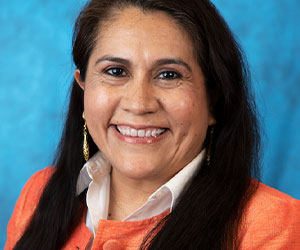
Why Pursue an MS in Engineering Education?
Engineering education draws from a variety of fields such as the science of teaching and learning, educational research, social science, cognition, psychology, philosophy and anthropology to expand our understanding of formal and informal learning systems in engineering. Engineering education not only contributes to the preparation of the future generations of engineers, but also to inform future practice in engineering environments where complex problems require solutions that integrate social, political, cultural, environmental, and economic challenges. A graduate degree in engineering education will prepare students for careers in teaching and academia, and advance students’ expertise for professions in industry, government, and non-profit organizations.

About the Program
The master’s program in Engineering Education focuses on developing innovative and inclusive methods for teaching and learning engineering subjects and is designed for students who have have a bachelor’s degree with an emphasis in engineering, engineering technology, computer science, science, mathematics, education (with specialization in mathematics, earth science, elementary science, biology, chemistry, physics, environmental science, general science or other STEM-related education), or certification in teaching STEM subjects.
Students have the opportunity to pursue advanced course work, hands-on training, and research experiences in engineering education in formal and informal K-12, undergraduate, and graduate settings. Engineering Education is a collaborative program between the Klesse College of Engineering and Integrated Design (KCEID) and the College of Education and Human Development (COEHD). Students benefit from resources and mentorship from distinguished professors from both colleges.
Master of Science in Engineering Education Program Options
Admission & Application Requirements
Applications are submitted through the UTSA Graduate Application. Please upload all required documents (listed below) on your UTSA Graduate Application. It is the applicant’s responsibility to ensure completion and submission of the application, a nonrefundable application fee, and all required supporting documents are on file with UTSA by the appropriate application deadline.
| Engineering Education (MS) | ||
|---|---|---|
| Required Degree | Bachelor's Degree from an accredited college or university in the United States or have proof of equivalent training at a foreign institution. | |
| Minimum GPA | 3.0 (on a 4.0 scale) Departments may consider GPA of last 60 semester credit hours | |
| Coursework | 18 credit hours in an area related to this graduate degree and at least 12 hours must be at the upper-division level. | |
| Transcripts* | Required from all institutions attended; international transcripts must be recorded/translated to English | |
| Credential Evaluation | Required if you have earned university-level credit from foreign institutions. Submit an evaluation of your transcripts from Educational Credential Evaluators (ECE) directly from the graduate admission application platform | |
| English Language Proficiency | 550 TOEFL Paper / 79 TOEFL Internet / 6.5 IELTS / Duolingo 100 | |
| Letters of Recommendation | 2 academic or professional reference(s) demonstrating your attributes for successful completion of this program (you will request these through the Graduate Admissions Application; let your recommenders know of your deadline to ensure submissions are on time) | |
| Purpose Statement | Required between 500 - 1000 words. Please convey who you are, present your academic and professional interests, discuss what you expect to gain from this graduate program, and how you will add value to the graduate program community. | |
| *Unofficial transcripts will be taken into consideration for admissions; however, if admitted into the program, you must submit official transcripts to the University. | ||
Application Deadlines
Applicants are encouraged to have their admission file completed as early as possible. All applications, required documents and letters of recommendation, if applicable, must be submitted by 5:00 PM U.S. Central Time on the day of the deadline. Deadlines are subject to change.
| Engineering Education (MS) | |||
|---|---|---|---|
| Timing on Admission Decision: Completed applications will be reviewed for admission on a rolling basis. Decisions generally will be made and sent to applicants within 4 to 6 weeks of receiving the application. | |||
| Application Deadlines for: | Priority | International | Domestic |
| Fall 2024 | February 1 | June 1 | August 1 |
| Spring 2025 | Not Available | October 1 | October 1 |
| Summer 2025 | Not Available | March 1 | March 1 |
Funding Opportunities
Learn MoreCareer Options
UTSA prepares you for future careers that are in demand. The possible careers below is data pulled by a third-party tool called Emsi, which pulls information from sources like the U.S. Bureau of Labor Statistics, U.S. Census Bureau, online job postings, other government databases and more to give you regional and national career outlook related to this academic program.
- EGR 6183 Engineering Education Methods
- EGR 6283 Mentored Teaching in Engineering
- EGR 6293 Professional Development in Engineering Education
- EGR 6313 Teaching Engineering through Visualization
- EGR 6453 Engineering for Inclusiveness and Social Justice
- EGR 6463 Engineering Social Responsibility and Ethics
- EGR 6513 Human Centered Design and the Impact of Modern Technologies
- EGR 6653 Foundations of Engineering Education Research Methodologies
- EGR 6853 Advanced Engineering Education Research and Assessment Methodologies
- EGR 6913 Advanced Topics in Interdisciplinary STEM Education
- CI 6613 Nature and Meaning of Interdisciplinary STEM Education
- CI 6623 Inquiry in Interdisciplinary STEM Education
- CI 6633 Equity, Agency, and Participation in Interdisciplinary STEM Education
- CI 6643 Assessment in Interdisciplinary STEM Education

Program Director & Graduate Advisor of Record
Araceli Martinez Ortiz, PhD
210-458-7052
araceli.ortiz@utsa.edu
